Diverse job positions
If last year, public interest was focused on the media and journalism industry because of the "sky-high" entrance score, even approaching the 30-point threshold, this year candidates and parents are interested in this industry for many reasons.
Nguyen Tran Thu Huong - a 12th grade student at Da Phuc High School ( Hanoi ) is wondering whether she should continue pursuing her dream of becoming a journalist or not. Thu Huong confided that her family advised her to choose another major because recently, the press planning policy has been actively implemented. The number of press agencies has decreased, so the demand for human resources may be saturated. This means that job opportunities after graduation will be more difficult than before.
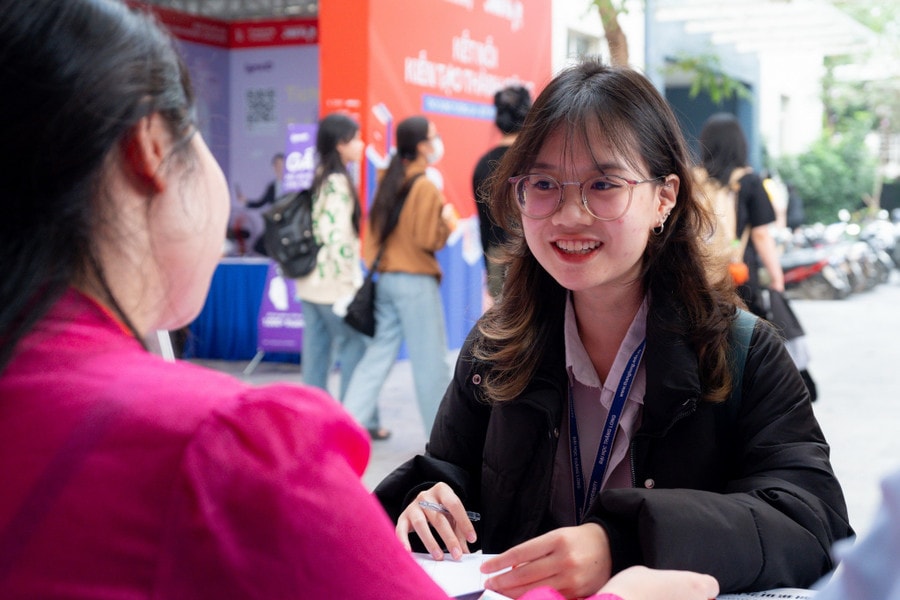
Nguyen Tran Thu Huong's concerns are also shared by many parents and students. However, according to Associate Professor, Dr. Dang Thi Thu Huong - Vice Principal of the University of Social Sciences and Humanities (Vietnam National University, Hanoi), at this time it is not possible to assess or conclude on the fluctuations in enrollment in journalism and communications in 2025.
“You should look at it this way: Studying journalism and communications is not just for writing and working in journalism, because this is a broad field with diverse job positions. In fact, this field is still 'hot' not only in Vietnam but also in the world ,” Associate Professor, Dr. Dang Thi Thu Huong informed.
Instead of worrying, the Vice Principal of the University of Social Sciences and Humanities advises students to equip themselves with good professional knowledge and soft skills to have the opportunity to choose a job in the future. They will be more successful if they choose a career that suits their qualities and passions. At the same time, they also need to consider, learn, and evaluate more fully and realistically about the major and career field associated with their needs, aspirations, abilities, and strengths.
Dr. Le Thi Hong Nhung - Acting Head of the Faculty of Communication and Public Relations (Union University) said that the field of multimedia communication is present in all aspects of social life, so candidates who love this field of study can rest assured about job opportunities and not worry about unemployment. Studying journalism and communication not only allows you to work in the field of journalism, but also in many different agencies, units and businesses such as: Reporters, editors, announcers, presenters, cameramen, film editors, television directors.
Students can also work in the field of public relations - advertising - marketing as: PR specialist, internal communications specialist, brand management specialist, advertising specialist, digital marketing specialist, event organizer, market research specialist; content creator, digital media channel manager, blogger, vlogger, podcaster, screenwriter, TV/online program producer...
Adapt to change
This year, many universities have changed the admission combination for the media and journalism majors. For example, the Academy of Journalism and Communication has stopped considering the C00 combination (Literature, History, Geography) in the method of considering academic records and high school graduation exam scores. Some schools have also added the admission combination: Literature, Natural Sciences, English or Literature, Social Sciences, English; Literature, History, English...
According to Dr. Nguyen Phi Long - Head of Training Department (Vietnam Women's Academy), this change is not a big problem, because the University Admission Regulations allow schools to be flexible. Candidates' job is to study well the subject groups they intend to apply for and choose a school that offers training in communications and journalism that suits their needs.
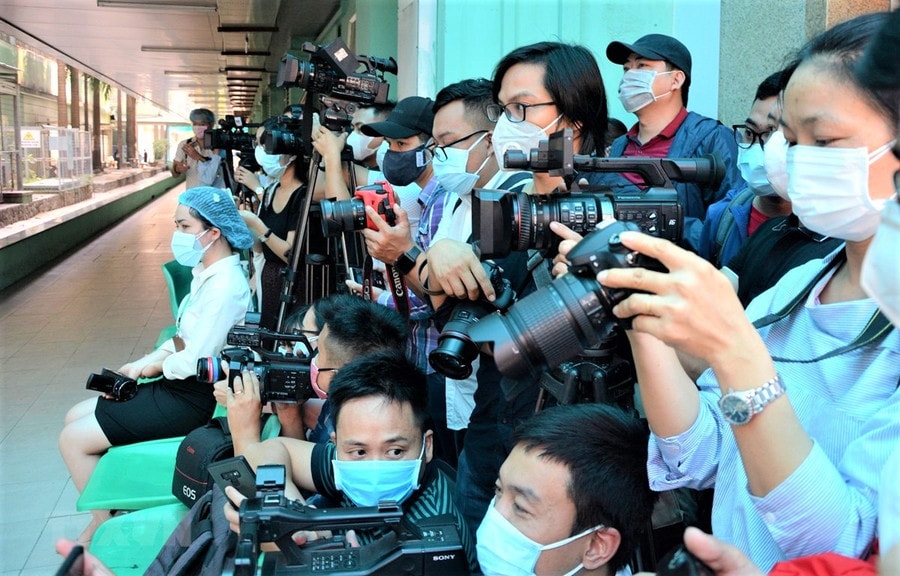
This year's enrollment will not limit the number of admission combinations, so Dr. Nguyen Phi Long advises candidates to focus on studying well according to their abilities and strengths. Higher education institutions will have to enroll students according to combinations suitable to their training majors and requirements to ensure the quality of their recruitment sources.
With the strong development of technology, many people are concerned that AI will replace the work of journalists. Associate Professor, Dr. Dang Thi Thu Huong affirmed that artificial intelligence (AI) cannot replace journalists. However, when technology develops, there are more or less negative impacts such as: causing interference, spreading fake information and images, and this is a challenge for the media industry in general and journalists in particular.
“In such a context, the role of a true journalist is even more important. The responsibility of a journalist is not simply to report news, but also to play a role in criticizing policies and guiding public opinion. Journalists need to have a broad understanding to report truthful news and serve the community,” Associate Professor, Dr. Dang Thi Thu Huong emphasized.
In the general context, Dr. Vu Thi Thanh Nhan - Head of the Faculty of Multimedia Communications, Thang Long University, said that schools and students must adapt and equip themselves with sufficient skills to meet the requirements of employers. For example, students majoring in Multimedia Communications at the school will be trained in 3 main directions: Photography; Design; Filming from basic to advanced. In particular, students will practice up to 80% during the learning process, ensuring to meet the requirements of the labor market.
“Studying Multimedia Communications is not easy, it requires students to be truly passionate about pursuing it,” Dr. Vu Thi Thanh Nhan noted, adding that candidates who love this field need to be confident and ready to adapt. In fact, in the admission process, many students choose their majors based on “trends”, mainly the majority. Therefore, students should pay attention and know what they love and what their abilities are before deciding on a major and school.
Keeping up with AI
From another perspective, Associate Professor Dr. Pham Minh Son - Director of the Academy of Journalism and Communication said that the development of AI opens up unprecedented opportunities, but also poses challenges for journalism - media and human resource training in this industry. AI not only fundamentally changes the process of information production, distribution and reception, but also opens up outstanding possibilities in improving the quality and effectiveness of communication.
This development also raises many issues regarding professional ethics, law and information security. In the current context, training and education continue to play an important role in realizing the goal of building a digital press and media industry in our country...
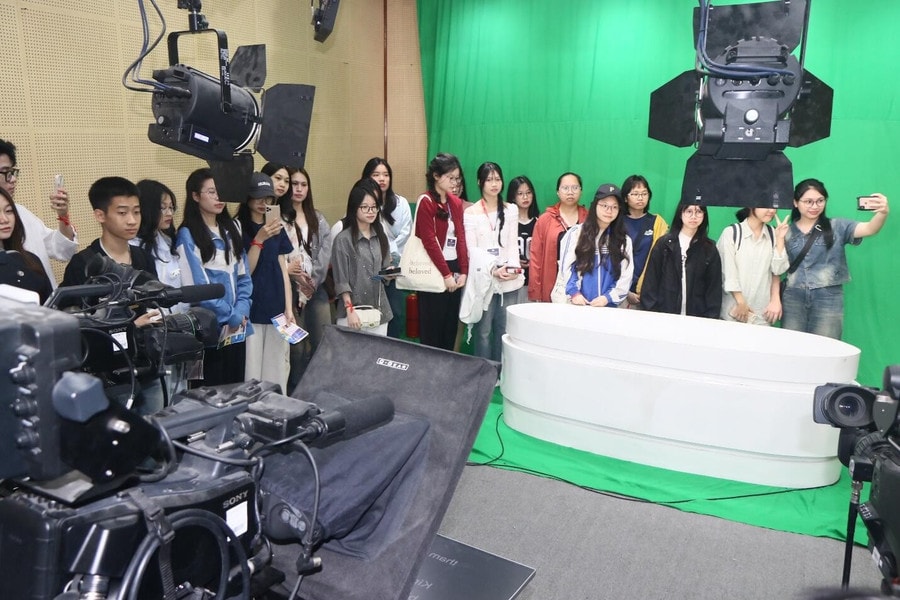
In recent times, journalism and communication training institutions have promptly integrated and included digital transformation contents into their training and development programs; at the same time, they have regularly updated, supplemented, adjusted, and perfected the framework programs and detailed programs of each major, in accordance with the requirements and demands of practice. However, the context of digital transformation also requires training institutions to redefine their training philosophy and objectives in line with new trends; and promptly develop a standard framework program for national journalism and communication training, in line with the requirements and tasks in the new situation.
These are new challenges for journalism and media training in the country, especially in the context of training quality in some places not meeting requirements or slow innovation in methods, investment in facilities and resources, and building separate mechanisms for journalism and media training still having many shortcomings and shortages...
Speaking at the International Scientific Conference “Journalism and Communication in the Context of AI Development”, Deputy Minister of Culture, Sports and Tourism Le Hai Binh emphasized that AI is profoundly changing the way people access, produce and distribute information, while also bringing about major challenges in terms of journalistic ethics, fake news and cognitive manipulation.
Faced with this reality, press management - a field that plays an important role in protecting the Party's ideological foundation and orienting public opinion - needs a comprehensive, interdisciplinary and flexible approach. In particular, it requires the joint efforts of the State, press agencies, especially training institutions, to contribute to the formation of future generations of journalists.
Associate Professor Dr. Le Hai Binh proposed three strategic directions from the perspective of State management: Completing the legal framework on AI in journalism; supporting the application of technology in press agencies; and improving the digital capacity of journalists. From here, the key role of training institutions in preparing journalism human resources to adapt to the modern media environment, capable of controlling and effectively exploiting AI without losing the core values of journalism.
According to Deputy Minister Le Hai Binh, journalism in the AI era is entering a new era - where technology can create and distribute information faster than humans, but the core values of journalism, which are authenticity, integrity and contributions to building society, still belong to humans and can only be preserved by humans.
The responsibility of state management agencies, press agencies and training institutions is to jointly create a humane, sustainable and responsible media ecosystem. Although we are in the process of innovation, reorganization and streamlining the apparatus, the development prospects and job opportunities for journalism and communication graduates are still open due to the development of the current digital technology context.
Based on a comprehensive assessment of the issues that AI poses to journalism and media, Associate Professor, Dr. Duong Trung Y - Deputy Director of the Ho Chi Minh National Academy of Politics suggested strategic solutions, including: Updating and innovating training programs to equip learners with necessary knowledge and skills about AI; promoting research on the impact of AI on journalism and media activities; and improving the capacity of the teaching staff.
Source: https://baonghean.vn/tuyen-sinh-bao-chi-truyen-thong-trong-boi-canh-moi-co-hoi-van-rong-mo-10300084.html



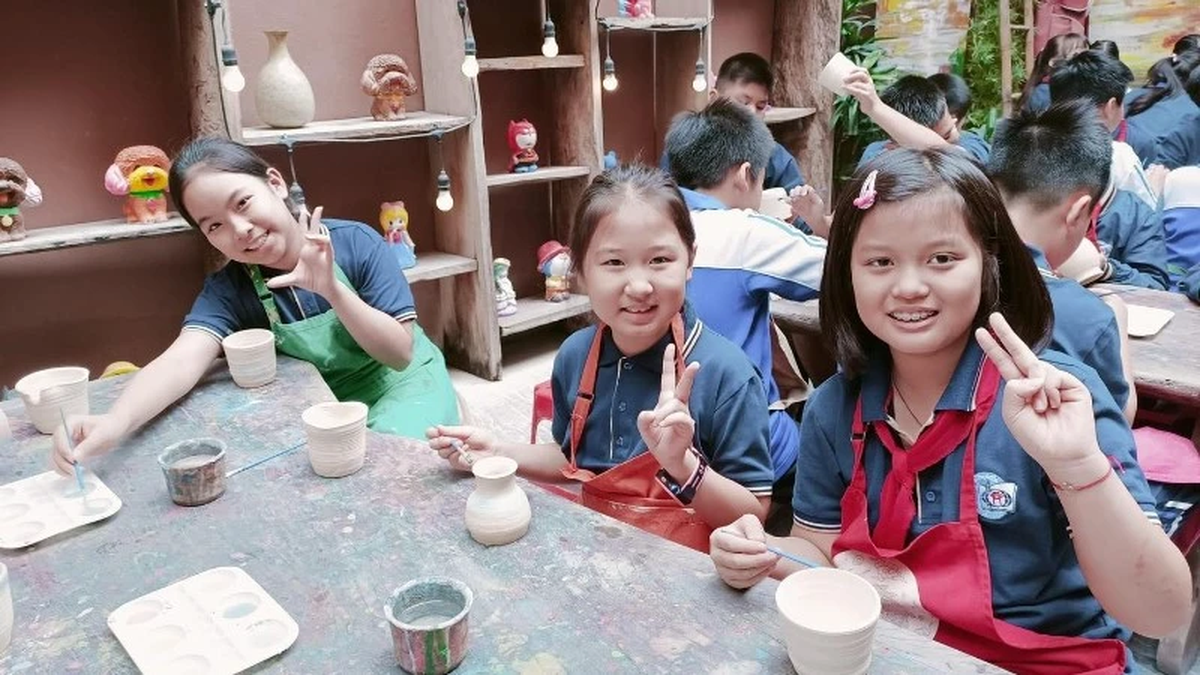

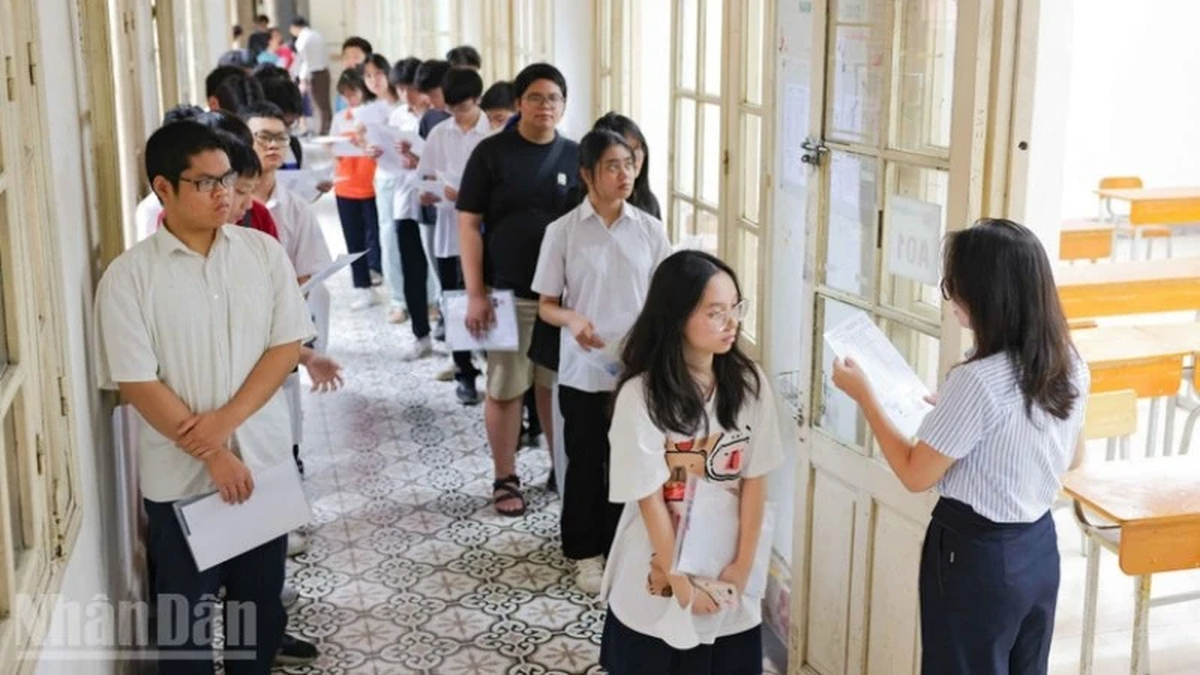

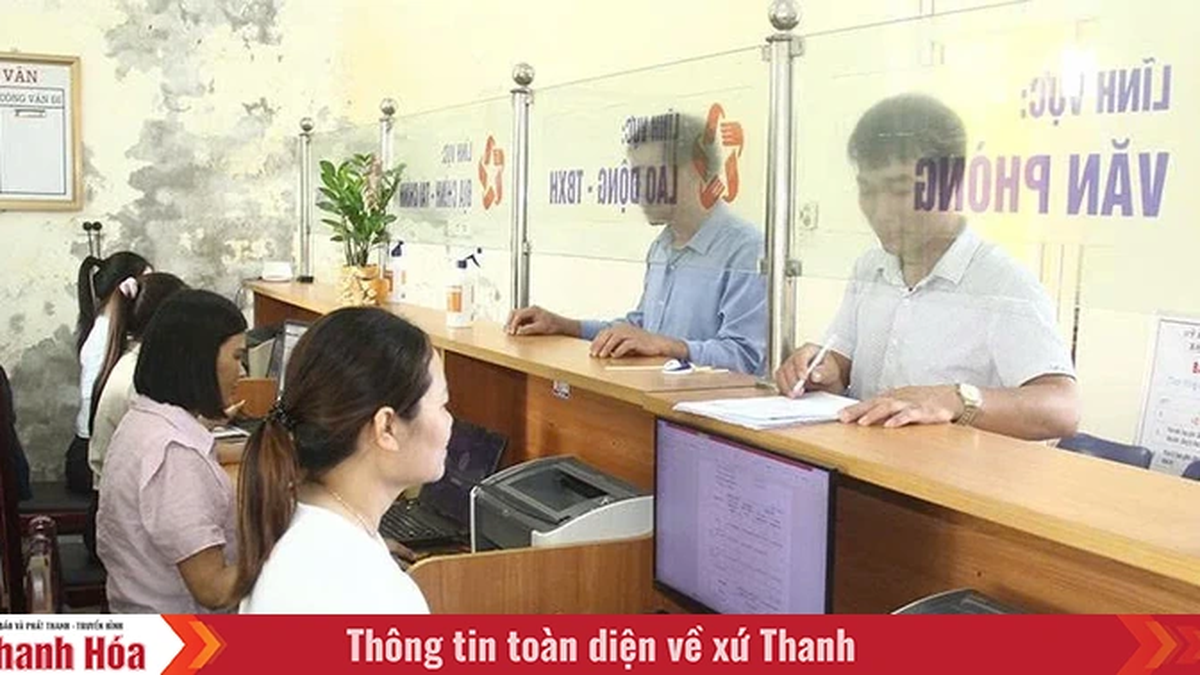
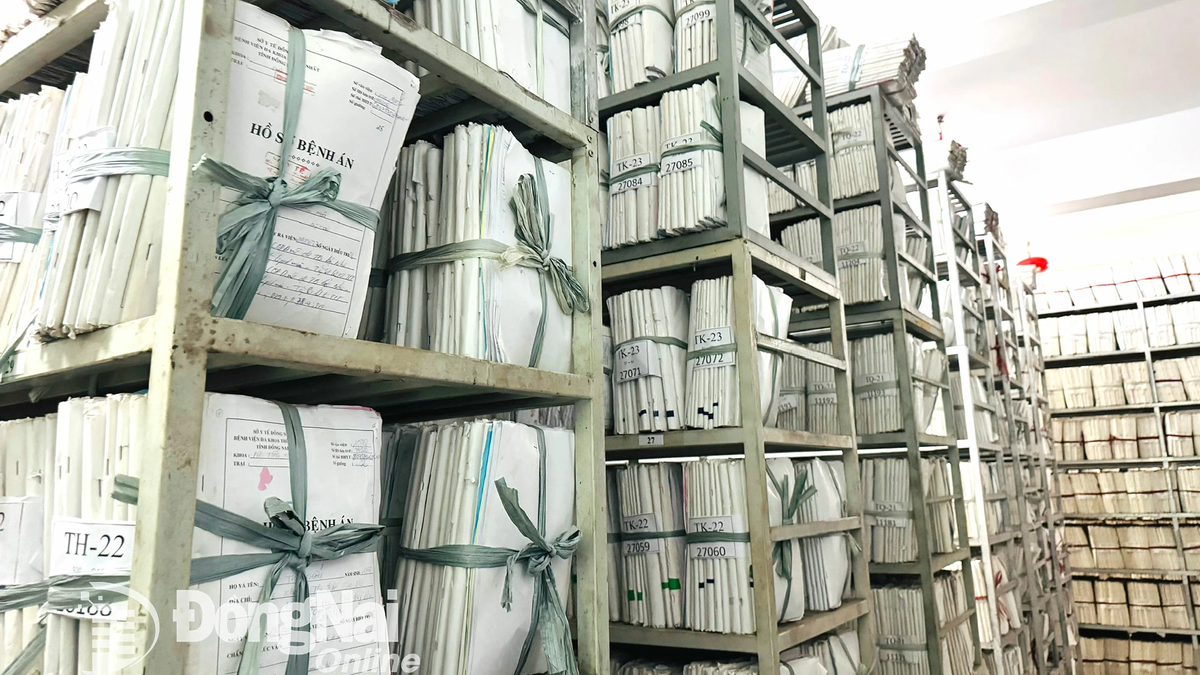

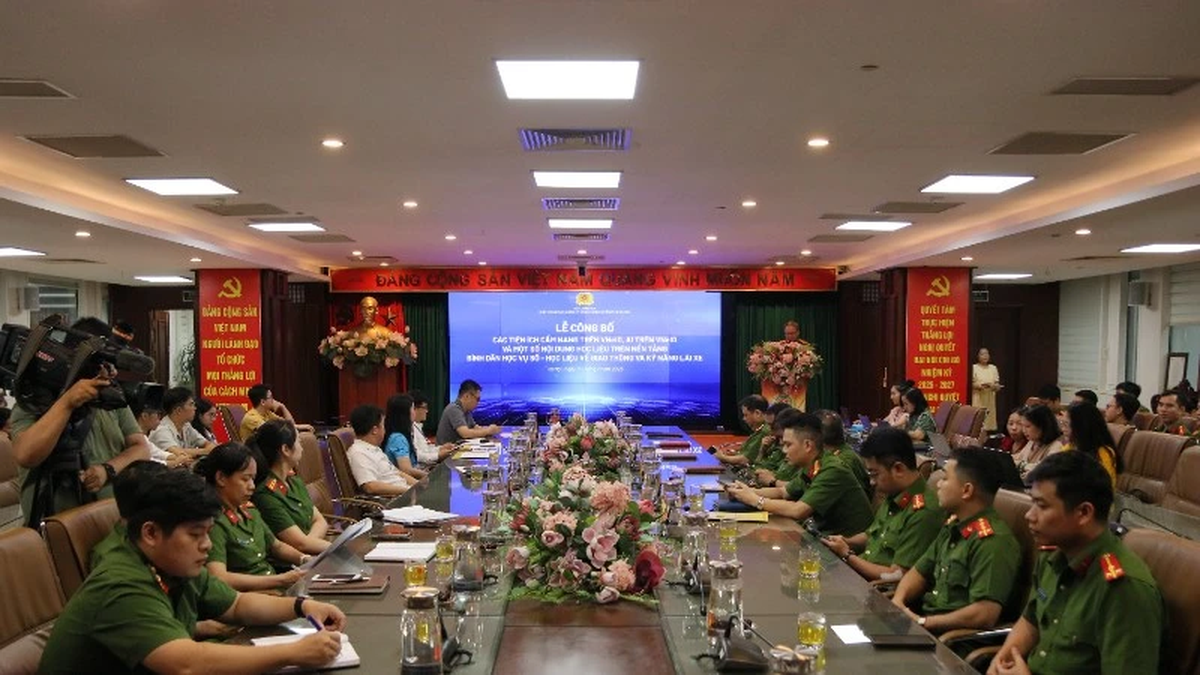































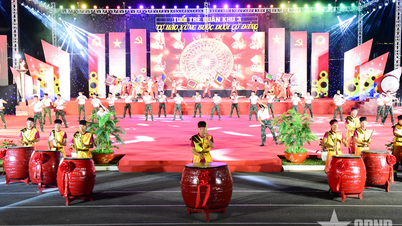





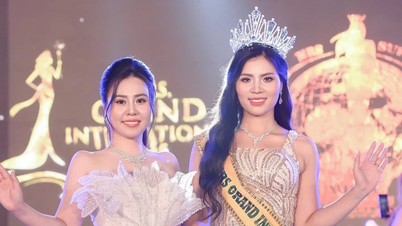





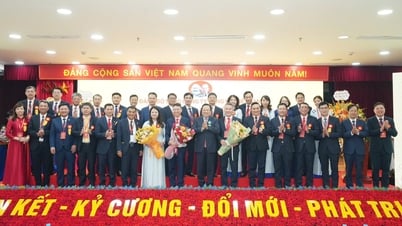






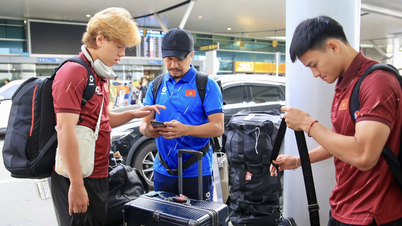


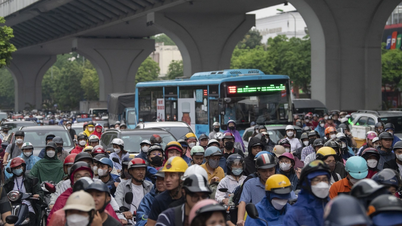
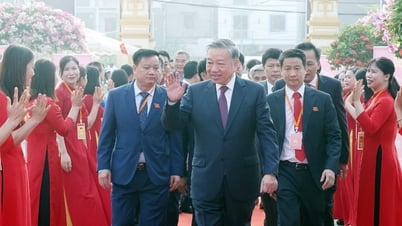
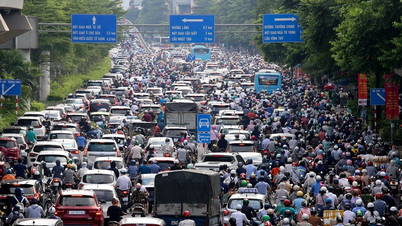
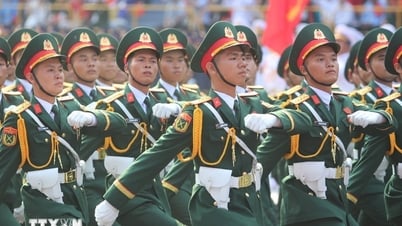


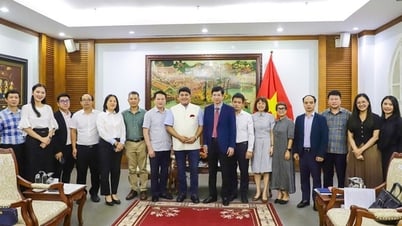





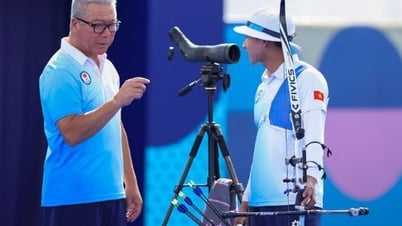
























Comment (0)